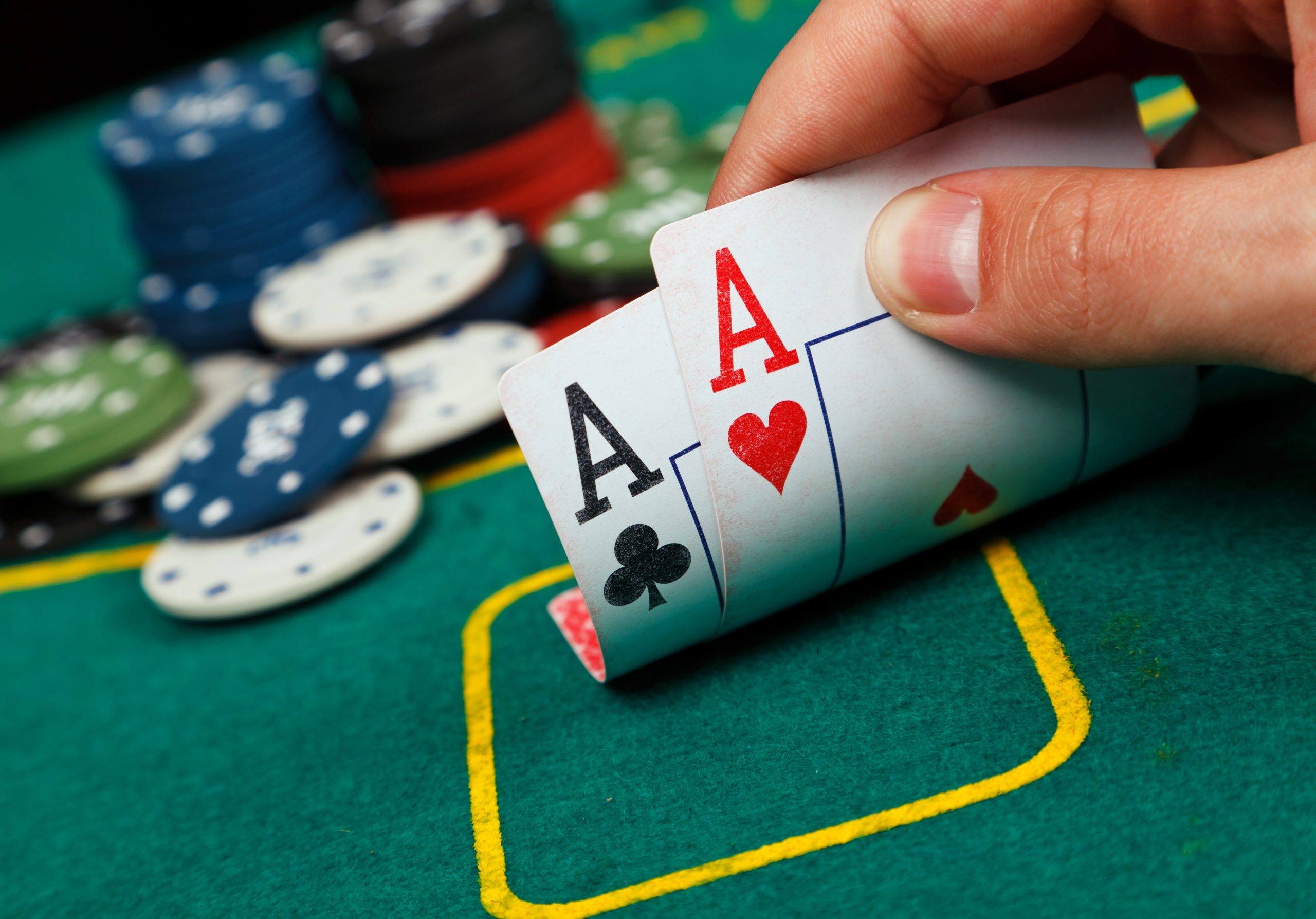
Poker is a card game of chance, but it’s also a game of skill. To win poker, you need a good understanding of the game’s rules and hand rankings, as well as a keen sense of how to read other players. You also need to know how to bet effectively.
Poker can be played with anywhere from two to 10 players, but the game is most popular when there are four or more people at the table. The game starts with one or more players making forced bets, usually an ante or blind bet. After the antes and blinds are placed in the pot, the dealer shuffles the cards, the player on the left cuts, and then the players receive their hands. Typically, each player has a maximum of five cards, although there are some variants where more or less than five are dealt.
When the first betting round ends, three new cards are put on the table for everyone to see – these are called community cards. A second round of betting begins, and each player can choose whether to raise, call, or fold.
The best way to improve your poker skills is to play as many hands as possible, but it’s important to learn when to step it up and when to be more passive. Inexperienced players tend to underplay their strong opening hands, which gives their opponents a huge advantage. For example, if you have a pair of Aces, it’s often better to call than to raise. This gives you more opportunities to steal the pot.
If you have a weak hand, it’s essential to bet at it. This will force other players to fold and raise your bluffing chances. It’s a simple but effective strategy that can make the difference between winning and losing.
As you play more and more hands, you will start to notice patterns in the betting behavior of your opponents. These are called “reads,” and they can help you determine how much of a hand is actually worth playing. Many of these reads are not based on subtle physical tells or nervous hand gestures, but rather on how often each player bets and calls.
Another key element of poker is position, which determines your ability to steal the pot. Position gives you the best opportunity to act last and make a value bet, or a bet that represents the odds of your hand beating the other players’. In addition, having position allows you to take advantage of other players’ mistakes and punish them.
It’s important to pay attention to your opponents at all times. If you can pick out the more conservative players and understand their betting patterns, then you will be able to read them better. Conservative players generally avoid high betting, so they are easy to bluff against. Aggressive players, on the other hand, will often bet early in a hand before seeing how their cards develop. These players are easy to bluff into folding their cards.